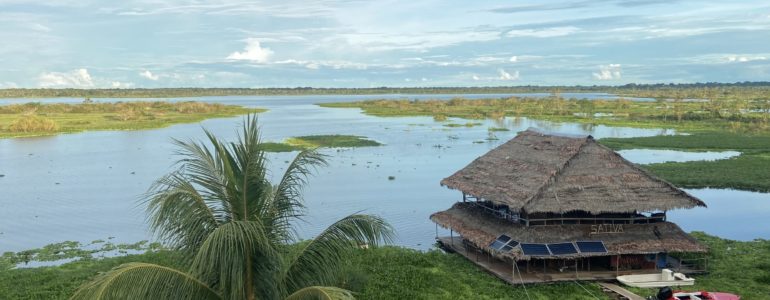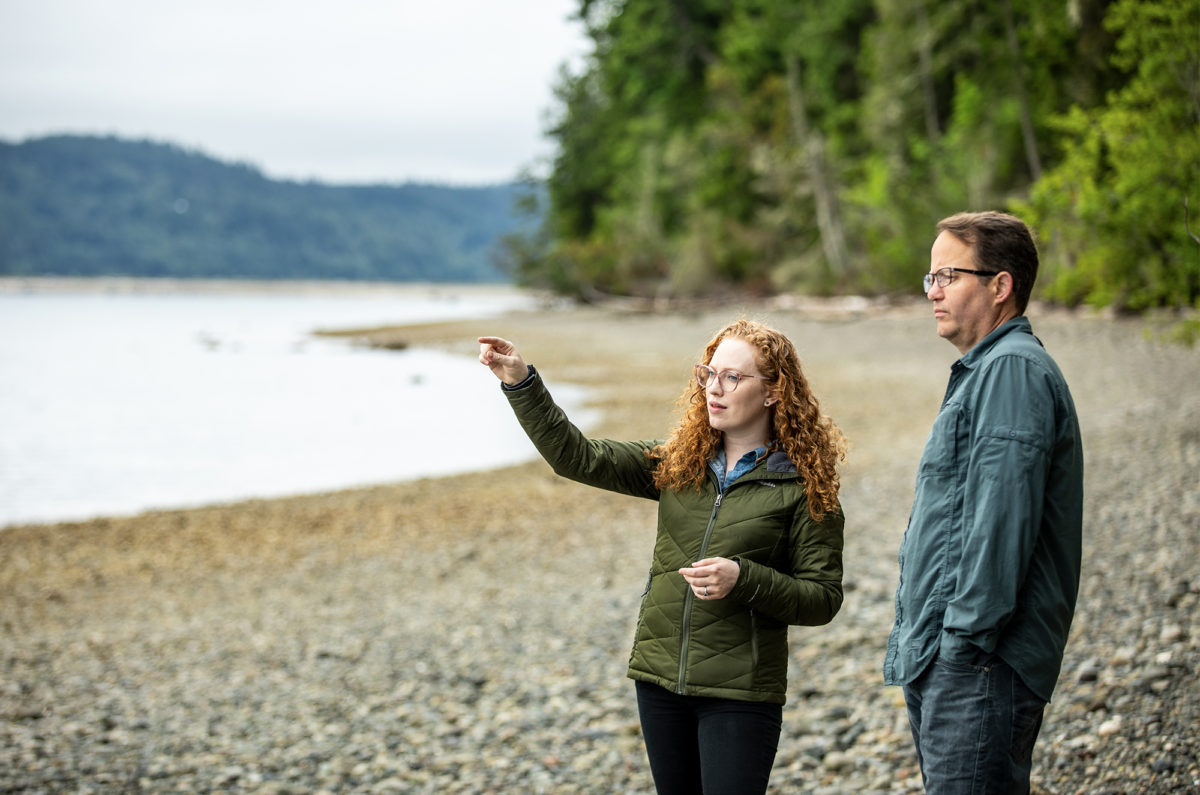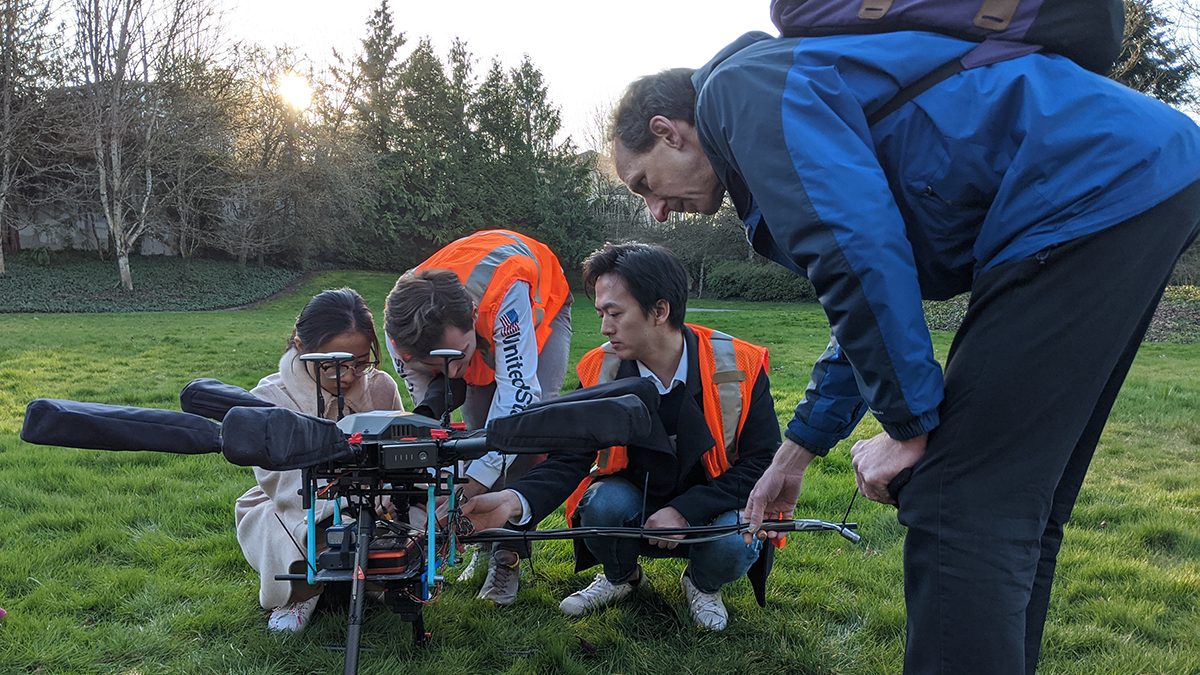Lessons from Urban Indigenous Immigrants: Integrated Social & Ecological Dynamics of Informal Communities
November 2024 Update: Ground Works Publication
Overview:
This project explores how traditional ecological knowledge can intersect with urban planning to build cultural and ecological resilience. Centered in Iquitos, Peru—an Amazon-adjacent city undergoing rapid urbanization—this initiative addresses the challenges Indigenous immigrant communities face when transitioning from nature-rich rural environments to informal urban settlements. The project focuses on two communities, Claverito and Belen, to develop strategies for sustainable urban living while preserving cultural traditions and ecological integrity.
Goals:
- Strengthen Cultural Resilience: Preserve and integrate traditional Indigenous ecological practices in urban settings.
- Promote Sustainable Urban Design: Offer evidence-based solutions to improve urban planning while minimizing ecological degradation.
- Empower Communities: Equip residents with tools and knowledge to advocate for their needs and shape their urban environments.
Approach:
This transdisciplinary project engages researchers, community members, and policy experts to produce innovative, community-driven solutions. The work includes:
- Comparative Analysis: Documenting environmental conditions, biodiversity, and traditional practices in Claverito and Belen.
- Reciprocal Training Programs: Facilitating mutual knowledge exchange between Indigenous communities and academic researchers.
- Advocacy Tools: Co-creating accessible materials like an illustrated book and gallery exhibit to amplify community voices.
Research Focus:
- Assess ecological and cultural dynamics in Indigenous immigrant communities.
- Develop urban planning models that integrate traditional knowledge.
- Evaluate how participatory approaches can address socio-environmental health challenges such as dengue and Zika outbreaks.
Why It Matters:
Urbanization in ecologically sensitive regions often leads to cultural loss, biodiversity decline, and health crises. By blending Indigenous traditions with modern urban planning, this project offers a blueprint for creating sustainable, resilient cities that honor cultural identities while addressing environmental challenges.
Activities:
- Ethno-Ecological Analysis: Study the flora, fauna, and seasonal practices of Claverito and Belen to highlight the ecological value of Indigenous knowledge.
- Community Science Training: Facilitate reciprocal learning programs between researchers and community members to enhance ecological literacy.
- Creative Advocacy: Develop advocacy materials, including an illustrated book and exhibit, to share findings and foster public understanding.
Expected Outcomes:
- Improved urban planning policies that prioritize ecological integrity and cultural resilience.
- Increased community capacity for self-advocacy and sustainable management of local resources.
- Heightened awareness of the socio-environmental benefits of integrating traditional knowledge into urban design.
Dissemination of Findings:
Findings will be shared through a multimedia exhibit and published materials accessible to both the local community and global audiences. This work aims to influence policymakers, urban planners, and researchers working in similar contexts worldwide.
Click here to read the team’s paper that was presented at the Environmental Design and Research Association EDRA54 Conference June 2023 in Mexico City, Mexico. Title: Understanding Human-Environment Connections in Urban Floodplain Communities of the Peruvian Amazon.
Research Team:
Leann Andrews, PhD, RLA, Affiliate Assistant Professor, UW Department of Landscape Architecture
Gemina Garland-Lewis, Socio-Environmental Photographer, UW Center for One Health Research
Ursula Valdez, PhD, Lecturer and Tropical Avian Ecologist, UW Bothell School of Interdisciplinary Arts + Sciences
Kathleen Wolf, PhD, Research Social Scientist, UW School of Environmental and Forest Sciences
Juan Noa Tunama, Community Leader, informal community of Claverito
Carlo Tapia del Aguila, Herpetologist, Centro de Investigaciones, Technologicas, Biomedicas y Medioambientales
Susana Cubas Poclin, Ornithologist, Universidad Nacional de la Amazonia Peruana
Christian Ampudia Gatty, Entomologist, Universidad Nacional de la Amazonia Peruana
Coco Alarcon, PhD Student in Implementation Science, UW School of Public Health


